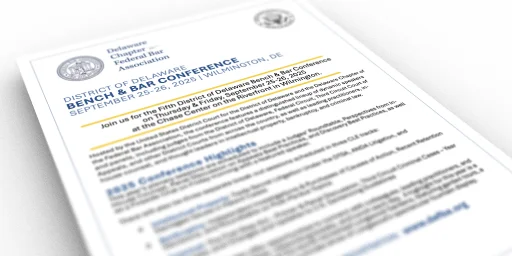
This week, the D. Del. website posted an opening for a term law clerk with Magistrate Judge Hatcher.
As most of our readers probably know, there are two types of judicial clerks: permanent and term. A permanent clerk is, well, permanent. They stay indefinitely. A term clerk stays for, typically, a one-year term, most often starting in September.
Serving as a term clerk is an amazing opportunity for an attorney and I highly recommend it. It gives you an incredible perspective on how the Court works, how judges manage cases, and countless other things that are immediately, practically helpful to working as an attorney.
A lot of clerks start straight out of lawschool (and, as such, likely do not read this blog). But there is no rule that you have to go straight from law school to clerking. Working a few years first is fine and, in my opinion, better in a lot of ways.
Having worked for a few years, you have a greater understanding of what is going on, what the attorneys are thinking, and why everything the Court does matters. The basic understanding of the law you get from a few years of working also helps you to do a better job as a law clerk.
The pay also scales rapidly with experience as an attorney. Per the announcement, having just two years of experience as an attorney before a clerkship increases your clerkship pay by 30-50%. It will still be a pay cut for those who are working at major firms, but it's a bit less of one (and, honestly, clerking is so valuable that it would be worth it even if unpaid).
Judge Hatcher is a magistrate judge, but don't let that deter you. I also clerked for a magistrate judge (Judge Burke) after working for a few years, and I can tell you that you will still learn quite a lot. The one major component that you miss out on as a clerk for a magistrate judge can be assisting with trials, if there are no consent trials that year. But, believe me, there will still be plenty to do and it is very much worth your time.
The Court is taking applications now, and the deadline is March 19, 2025. If you're a lawyer with a few years of experience who lives and practices in the District of Delaware, consider applying!
If you enjoyed this post, consider subscribing to receive free e-mail updates about new posts.





